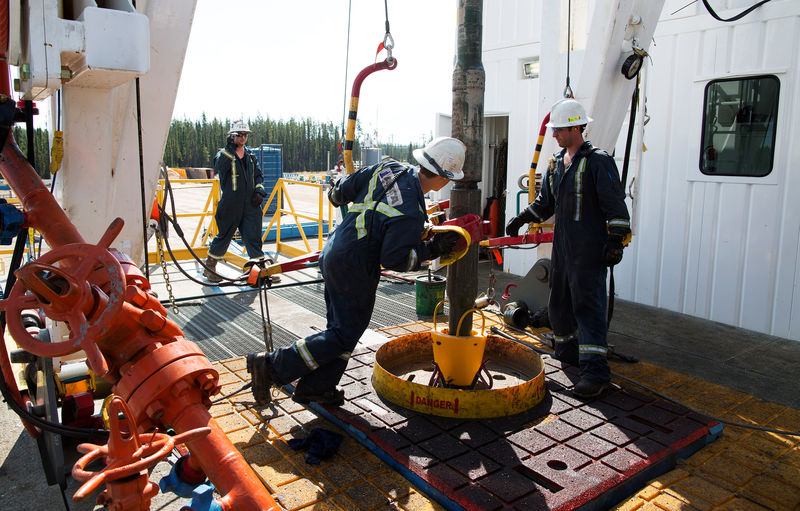Investing.com - Oil prices climbed higher on Tuesday, extending a rally in U.S. crude to a fourth day, as tensions between the U.S. and Iran intensified ahead of a host of potentially market-moving events.
New York-traded West Texas Intermediate crude futures rose 34 cents, or 0.6%, at $58.24 a barrel by 9:43 AM ET (13:43 GMT), while Brent crude futures, the benchmark for oil prices outside the U.S., gained 27 cents, or 0.4%, to $64.45.
After U.S. President Donald Trump targeted Iran’s Supreme Leader Ayatollah Ali Khamenei and other top officials with sanctions designed to cut off access to financial resources, Iranian Foreign Ministry spokesman Abbas Mousavi said the “useless sanctions” meant that hopes for a diplomatic solution had ended.
Oil has been buoyed by fears of a conflict that could disrupt supplies out of the Persian Gulf, after attacks on oil tankers near the Strait of Hormuz and the downing of an unmanned U.S. drone that Washington blamed on Iran.
“At least through year-end, (the) likelihood is just for more antagonism,” Abhi Rajendran, head of North America Energy Research at Energy Intelligence, said via Twitter.
U.S.-Iran tensions aside, Investing.com senior commodity analyst Barani Krishnan noted that the run-up to the OPEC and G20 meetings would also be key for investors.
The G20 meeting in particular is likely to send important signals for world oil demand in the second half of the year, given that President Donald Trump and China's Xi Jinping will have the chance to ratchet their trade dispute either up or down.
“These being extraordinary times for oil traders means bulls have to be hedged for the most unexpected of events,” he warned.
Kremlin spokesman Dmitry Peskov said Tuesday the Russian President Vladimir Putin will meet Saudi Crown Prince Mohammed Bin Salman at this week’s G20 summit.
Although Peskov did not provide details, the two will be sure to discuss whether and how to extend the current production cut agreement between OPEC and other producers, of which Russia is by far the largest. Recent remarks from Russian Energy Minister Alexander Novak have suggested that Russia still needs to be convinced to follow through on the deal, not least because the oil price it needs to balance its budget is significantly lower than the price that Saudi Arabia needs.
Russia had convinced OPEC to delay the meetings initially scheduled for June 25-26 to July 1-2.
The American Petroleum Institute will release its weekly data on U.S. crude stockpiles after the market close and ahead of the official EIA data out Wednesday. Consensus forecasts a draw of 2.9 million barrels, although Krishnan also warned of the risk of “another surprise build" given that a fire on Friday at a Philadelphia refining complex that makes a quarter of the region’s fuel products could distort the near-term numbers.
In other energy trading, gasoline futures jumped 1.3% to $1.8400 a gallon by 9:44 AM ET (13:44 GMT), while heating oil advanced 0.4% to $1.9197 a gallon.
Lastly, natural gas futures traded down 1.2% at $2.257 per million British thermal unit.
